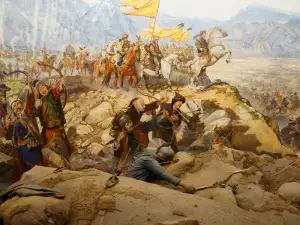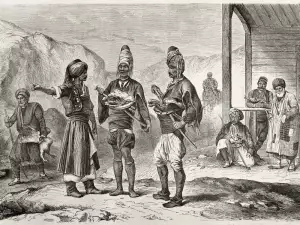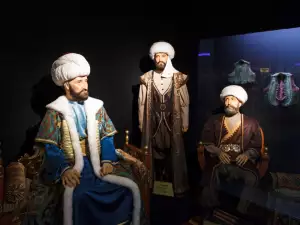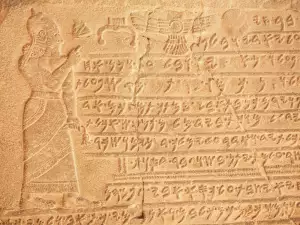In the 5th century, barbarian Germanic tribes invaded the lands of the Western Roman Empire and settled in these places. These are the franks. In historical science, they are known as a large tribal confederation created by more ancient Germanic tribes.
They are divided into two distinct branches: the Salic Franks, who inhabit the lower course of the Rhine River, and the Rhenish Franks of the upper course of the river.
The first information about the Franks dates back to the 3rd century. Then the historical chronicles mention the two alliances of Germanic tribes. At the beginning of the next century, one group, the Salic Franks, expanded territorially. At the end of the century, Clovis became king of the Salic Franks. He came from the Merovingian family and was distinguished by the qualities of an excellent military strategist and tactician. Clovis captured the entire region of Gaul and managed to remove the remaining local rulers. He declared Paris to be his capital. This marked the beginning of the Frank country.
Clovis accepted Christianity and thus gained a strong ally - the Roman Church. The first king of the Franks established the state by introducing the written Salic law. All Ancient Germanic customs and norms of life are written in Roman letters.
The next Frank rulers led the kingdom to rise and expansion of territories. However, the Merovingian dynasty itself declined as local governors, called majordoms, gained more and more rights and influence and eventually ruled the royal territory.
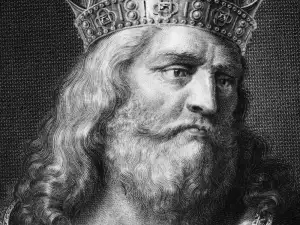
The last kings of the ruling dynasty are known as the lazy kings, as they have practically lost power completely. At the end of the 7th century, another dynasty - the Carolingians, united the entire Frankish kingdom under its authority.
At the beginning of the next century, the mayor Karl Martel rallied the entire aristocratic stratum around him. This is imperative as the Arabs try to penetrate deep into Europe. Martel defeated them near the city of Poitiers thanks to his innovation - the heavily armed cavalry. This military formation became an important part of the army. The Equestrian Knights emerged as a class of aristocrats, forming the backbone of the military power of the West for centuries to come.
Undisputed peak in the history of the state of the Franks is the reign of Charlemagne, under whom the state of the Franks became a neighbor of the medieval Bulgarian county of Khan Krum. After defeating the Saxon tribes and capturing Saxony, Charles expanded the country to the Elbe River, making it a vast empire.

